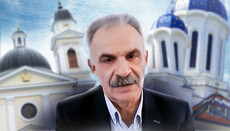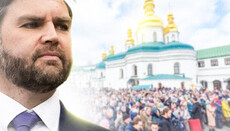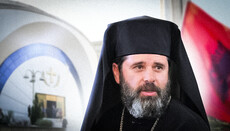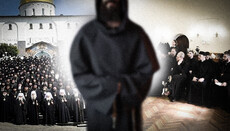Patriarch Theodore's lament: What did Alexandria Church accuse ROC of?
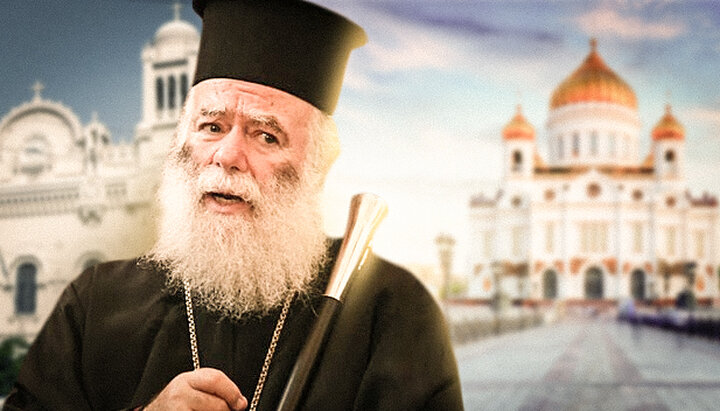
The Synod of the Church of Alexandria published a statement on the ROC Exarchate in Africa, and Patriarch Theodore addressed his clergy. We analyze these documents.
On January 12, 2022, the Synod of the Orthodox Church of Alexandria published a statement on the actions of the Russian Orthodox Church in Africa. And the next day, Patriarch Theodore published an encyclical to the holy clergy of the Alexandrian Church. These documents are a response to the decision of the Russian Orthodox Church of December 29, 2021 to create an Exarchate in Africa and accept 102 clerics of the Patriarchate of Alexandria into its jurisdiction.
The present Synod of the Patriarchate of Alexandria began its work on January 10, 2022. Surely, the number one issue concerned the establishment of the Exarchate of the Russian Orthodox Church, which was discussed for almost all three days of the meeting. It is interesting that the platform for accusations against the Russian Church was prepared by Metropolitan George of Peristeria of the Hellenic Orthodox Church, and the first (January 11, 2022) to announce the “non-canonical invasion” of the Russian Church on the territory of the Patriarchate of Alexandria was the Phanar, which also made a commitment to restore canonical order on the African continent. In other words, the Greek Churches acted as a united front against the creation of the Exarchate of the Russian Orthodox Church in Africa, which, in the light of the events of the past two years, does not look strange. What decisions did the Alexandrian Church make?
"Canonical parameters of a non-canonical invasion"
In the first lines of the synodal statement of the Church of Alexandria, it is said that “with a sense of responsibility towards their flock and their long historical apostolic course, the hierarchy of the Patriarchate of Alexandria has repeatedly and comprehensively examined the canonical parameters of the non-canonical and anti-ecclesiological invasion of the Patriarchate of Russia in order to create new ‘church forms in Africa’.”
What do we see here?
Firstly, the ROC is accused of violating the canons, and secondly, of “anti-church invasion” (the text speaks of “anti-ecclesiological invasion”). That is, the African Greeks accuse the Russian Church of breaking the canons and violating Orthodox ecclesiology. But if so, what exactly Holy Canons did the Russian Church violate? Invaded the territory of the Patriarchate of Alexandria? Yet not a single canon says anything what borders the Alexandrian Church is limited by. Its attempts to appropriate the entire African continent appeared only in the 20th century, when Patriarch Meletios (Metaxakis) sat on the throne of Alexandria, the one who decided that all Orthodox diasporas belonged to Phanar, and that the Patriarch of Constantinople had inalienable privileges. There are no other decisions regarding the territorial boundaries of the Church of Alexandria and there never was. The Local Churches simply tacitly agreed that Africa is a missionary territory (which, by the way, Patriarch Theodore himself speaks about) of the Patriarchate of Alexandria, which, having recognized the schismatics from the OCU, backslid into schism itself. And if so, then the Russian Church did not violate any canons by creating its Exarchate.
The creation of the Exarchate is resulted from the recognition of the OCU
In the appeal of the Synod of the Patriarchate of Alexandria, it was noted that the Russian Church created its Exarchate in Africa after Patriarch Theodore had recognized the “autocephaly” of the OCU. According to the synodals, this is “direct retribution” (for the recognition of the OCU by Patriarch Theodore – Ed.) and “blackmail or revenge against us.” Moreover, according to the African Greeks, the decision of the ROC came out of the blue for them.
This is, of course, not true. Patriarch Theodore was repeatedly warned that his actions to support the schismatics would be followed-up. Moreover, even a year ago, the pro-fanariot media said that the Russian Church was preparing to create its own Exarchate on the territory of the African continent. At the same time, the approximate number of clerics of the Patriarchate of Alexandria who wanted to change jurisdiction was also announced. So everything that happened was quite anticipated.
But what we did not expect was the confessions from the synodals of the Church of Alexandria that the creation of the Exarchate is a direct consequence of the recognition of the OCU by Patriarch Theodore.
This is a key point, because it is on it that the further recourse to the canons of the Church depends. Dumenko is a schismatic. To be more precise, he is a layman without any priestly ordination. Filaret also spoke about him in the same vein –"if I was under anathema, then Epiphany is not only not a metropolitan, he is not even a priest." Recognition of Dumenko’s whatever canonical status without an appropriate general ecclesiastical procedure is a direct violation of the canons. This means (since the canons ceased to be valid for the Patriarch of Alexandria), the creation of the Exarchate on the former territory of his patriarchate is not a violation of the canons but a filling of an ecclesiological void.
Since the canons ceased to be valid for the Patriarch of Alexandria, the creation of the Exarchate on the former territory of his patriarchate is not a violation of the canons but a filling of an ecclesiological void.
On the other hand, the document of the Synod clearly states that the decision to include the name of Epiphany Dumenko in the diptychs of the Church of Alexandria was made by Patriarch Theodore unilaterally, rather than in a synodal manner. It means the Synod of the Church of Alexandria did not even formally speak out on this issue.
Therefore, no matter how much they talk about their “surprise” now, that doesn’t change the fact that the Alexandrian Church understood what they were going for and how it would all end. The real surprise for the Orthodox all over the world was the association of Patriarch Theodore with the schismatic Orthodox Church of Ukraine, while everything else is only a consequence.
What methods are being used?
According to the statement of the Synod of the Church of Alexandria, by creating its Exarchate in Africa, the Russian Church “uses methods for this being contrary to church acts and tradition, which was observed by all the predecessors of Patriarch Kirill of Russia.”
Hearing about methods “contrary to church acts” from people who support the actions of Phanar in Ukraine is at least unexpected and strange.
After all, it is Phanariots who have no scruples about “convincing” that they are right using a variety of “methods” – from threats to blackmail and bribery. How was the legalization of the OCU achieved? With the help of the US State Department. Michael Pompeo (head of the US State Department) personally visited the Primates of the Local Orthodox Churches to tell them about the “need for religious freedom” of Ukrainians and their “right” to create an “independent” religious organization for themselves. Geoffrey Pyatt (US Ambassador to Greece) made several trips to Athos, actively interacted with the Primate of the Church of Greece and did everything to make Dumenko "native" for the Greeks. Don’t such methods contradict “ecclesiastical practice”?
Ethnophyletism, neo-colonialism and primacy
Further, the African Greeks simply decided to use the old and favorite trick of all manipulators – blame shifting. Thus, in their opinion, the Russian Orthodox Church “is making an attempt to change Orthodox ecclesiology in many of its individual parameters, but above all in terms of the boundaries of the administrative structure of formations of the Church of Christ, based on the motive being far from Orthodox Tradition. We understand with regret that all this is motivated by the ‘virus of ethnophyletism’ condemned by the Council of 1872." The ROC, in their opinion, has a "secular spirit", an ambition for "neo-colonialism" and "claims for global primacy on the poor African continent."
In other words, the hierarchs of the structure, which is 98% Greek, and which is officially called the "Greek (!) Orthodox Patriarchate of Alexandria", declare some kind of ethnophyletism among the Russians! To be convinced of the statement being moronic and cynical, it is enough just to look at the photo of the meeting of the very synod on behalf of which the accusations of ethnophyletism were made. How many black bishops are there? One! Another black man (but it is not clear whether he is a bishop or a priest) is sitting on the left at the table. That’s all. Where are the bishops of African origin on the African continent? After so many years of mission, which Patriarch Theodore rants about, the episcopate of the Church of Alexandria should now consist of at least half of the inhabitants of the continent. But this is not so. Why? The answer is obvious.
The hierarchs of the structure, which is 98% Greek, and which is officially called the "Greek (!) Orthodox Patriarchate of Alexandria", declare some kind of ethnophyletism among the Russians!
In addition, let's remember how Patriarch Theodore, sending seminarians on a mission to Africa, urged them to bring to the masses the "light of Hellenism", rather than the Gospel. The same Patriarch Theodore reiterates his Greek origin, celebrates all public holidays in Greece, speaks of the cultural superiority of Hellenism, and so on. Is this not ethnophyletism? If not, what is it? At the very least, wickedness.
On the knowledge of history and schismatics
In this sense, the accusations against the Russian Orthodox Church made by Patriarch Theodore on the day following the Synod's meeting look no less strange. In his address to the clerics of the Church of Alexandria, the Patriarch unexpectedly stated that the Russian Church, after receiving autocephaly in 1589, "enslaved the Orthodox of Ukraine." Why unexpected? Because at the end of 2016, commenting on the situation in Ukraine, he called the UOC a part of the Russian Church: “The Patriarchate of Alexandria and I, as its representative, took the position that the Ukrainian Church is an integral part of the Russian Orthodox Church.”
In the same message to his (still) clerics, Patriarch Theodore claims that since 1991, Orthodox Ukrainians have been striving for independence from the ROC. But this statement is even more startling. After all, if we are talking about the UOC, it was granted the status of broad autonomy and actual independence back in 1990. But if we are talking about schismatics, they have never been dependent on the ROC. Moreover, these words of Patriarch Theodore completely contradict everything he has said before. For example, in 2018 he clearly stated that “if the schismatic Denisenko wants to return to the bosom of the Church, then he needs to go back to where he left. What has fallen away must return to where it fell away from.” That is, his position regarding those who want to be independent from the ROC is utterly clear – to return back.
In addition, in 2015, being perfectly aware of who and why promoted “independence” from the Russian Orthodox Church, Patriarch Theodore stated the following: “Unfortunately, some people come from outside (we are talking about the UOC-KP – Ed.) and impose on the Ukrainian people these contradictions. As an Orthodox hierarch, I ask the faithful in Ukraine to remain under the omophorion of the canonical head of the Ukrainian Church, Metropolitan Onuphry.”
Who claims the global championship?
In the same way, one can also call the accusations against the Russian Church of “claims for global primacy” voiced in the synodal document of the Church of Alexandria as wicked. After all, by and large, the same people who blame the ROC do not hesitate to relay the Phanar’s position about “the first without equals” or about the “special privileges” of the Patriarch of Constantinople.
For example, in the already mentioned message of Patriarch Theodore to his clerics dated January 13, 2022, it is said that Phanar “enjoys primacy among other ancient patriarchates” and has “special privileges and responsibilities within the Body of the Church.” Patriarch Theodore is sure that “this special and unique position” of Phanar is “secured in the Holy Canons, the Tradition and the Act of the Church”, that Phanar “has the first word in the Church” and “has always taken care of the governance of the Orthodox Church and the solution of the problems that arose.” How was it done? “The Orthodox World was considered divided into these four Patriarchates (and the Church of Cyprus) and their geographical boundaries were considered separated, clear and unambiguous. If problems arose at any time, these were resolved by Synods convened by the Ecumenical Patriarch and attended by the other three Patriarchs.”
He further writes that "the Russian Church, wanting to increase its power and prestige in the Orthodox World, using secular power and – sometimes – violence, began to trample and 'enslave' neighboring Orthodox Churches.”
In other words, speaking directly about the privileges of Phanar and its primacy in power (see the phrase about the governance of the Church), Patriarch Theodore does not hesitate to accuse the Russian Church of claims for primacy, which, in turn, constantly emphasizes that its only desire is to revive the catholic character of the Church. It is precisely that character in which there will be no "first in power", but only "first in honor". What other “claims” does the Russian Church have, except for the desire to convene a Council to analyze the actions of Phanar in the spirit of the canons of the Church?
About borders and "disgusting blow"
The Greeks write that for them “the boundaries of each Local Church are clear, geographical, mapped by the Ecumenical Councils and respected. And we declare that we have never invaded the boundaries of any Local Sister Church, let alone the Russian Church.”
Here the question immediately arises – if the Church of Alexandria respects the boundaries of the Local Russian Church so much, then why didn’t it oppose the violation of these boundaries when the head of Phanar legalized the OCU? Moreover, Patriarch Theodore made a lot of statements until 2019 that he considers Ukraine to be the canonical territory of the UOC.
Nominally, yes, by recognizing the Ukrainian schismatics, Patriarch Theodore did not invade the borders of the Russian Church, but simply supported the one who’d invaded. Or do African Greeks recall foreign borders only when they realize they can lose their own? It looks that way.
Speaking further about the creation of the Exarchate, the synodals of the Church of Alexandria write, “We are surprised at this not only because the message of gospel love is hence distorted, but also because fighting and collaborating with various denominations and religions in a spirit of mutual respect and understanding for centuries, we've been dealt a disgusting blow from Russian co-religionists.”
As regards the "disgusting blow", the synodals could ask the main specialist in this case – their patriarch. After all, it was Patriarch Theodore who repeatedly called on the Ukrainian people to rally around Metropolitan Onuphry, to be faithful to the canonical Ukrainian Orthodox Church, but then he betrayed himself and Orthodoxy, of the allegiance to which he assured everyone and everything.
In addition, speaking about collaboration with various denominations “in the spirit of mutual respect and understanding,” the patriarch might wonder why he refuses such cooperation with the Russian Church? He was repeatedly called to dialogue, to reconsider his decision to recognize the Ukrainian schismatics, invited to the Primates' summit in Amman. Why was he reluctant in all these cases to show “respect” to his fellow Christians and try to at least approximately “understand” the pain and disappointment he had brought to the Ukrainian land?
Inform Phanar and punish violators
In conclusion, the Patriarchate of Alexandria decided to inform Phanar and the Primates of the Local Churches about the “painful confusion occurring among the ‘children born of us in Christ’, faithful Africans, as a result of the visible and invisible actions of authorized persons of the Russian Church” and made a commitment “in a proper manner” and “immediately" apply those church punishments to violators as "prescribed by the Divine and Holy Canons."
It is understandable that without “informing” Phanar and receiving the “go-ahead” from it, the African Greeks will not do anything. They are not at the “clearance level”. It is also clear that those who dare to move to the Russian Orthodox Church will be “punished” in the Church of Alexandria cruelly and mercilessly – not only with the help of the canons, but also with the help of tried and tested means: intimidation, threats and blackmail. Anyway, the question is – what's next?
So far, one thing is clear from the document published by the Greek Patriarchate of Alexandria – this is just the beginning. The Greeks will try to unite as much as possible against the Russian Church and will do everything to eliminate the very possibility of a conciliar solution to the conflict that arose because of the OCU. The council will become possible either only in a reduced composition (with the presence of those who are dissatisfied with the actions of Phanar), or only if the Greeks are confident in its favorable outcome for themselves.
The truncated composition of the “council” is already being worked out with might and main. At first, Kirill Govorun, a freelance cleric of the Russian Orthodox Church, spoke about the possible restoration of the Pentarchy, and today Patriarch Theodore also voiced this idea. The Pentarchy is the four Patriarchates that have Greek roots (Constantinople, Alexandria, Antioch and Jerusalem) and the Church of Cyprus. If the Phanariotes succeed in implementing this idea, they will not only get a majority of votes against the Russian Church (three against two), but they will also receive such a longed-for dominance in Orthodox World. In addition, this domination will make their dream of unity with the Catholics come true much faster. What does this unity have to do with the situation at hand? In fact, the whole plan with the OCU was hatched for the sake of this unity. But something went awry with the Phanariots ...
Be that as it may, events are likely to develop faster than one can imagine. And their outcome is impossible to predict. Because not only Phanariots have a plan. Christ also does.
And as history shows, these plans coincide very rarely.
